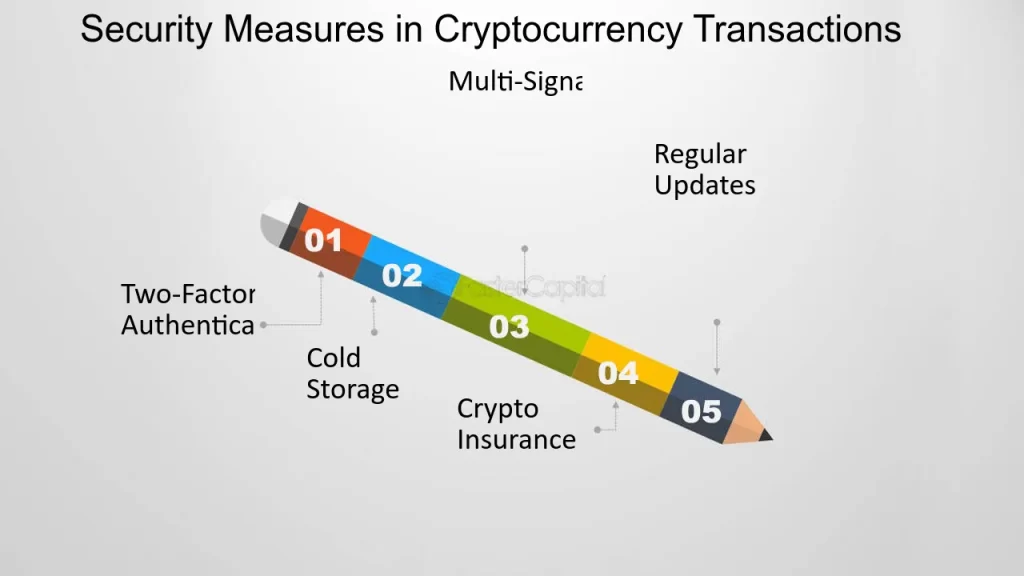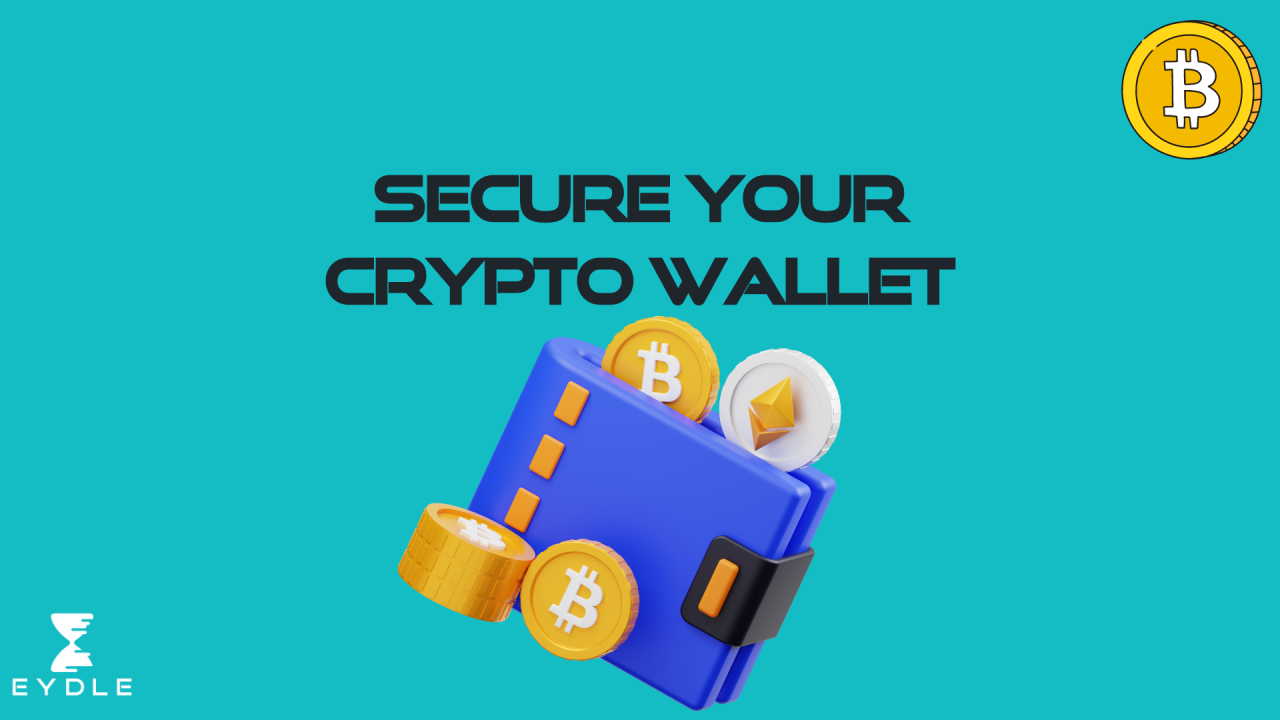AUTHOR : SAYYED NUZAT
DATE : MAY 18, 2024
Introduction
Cryptocurrency is the buzzword of the decade, and India is no exception to this global phenomenon. With an increasing number of Indians diving into the world of digital currencies, the focus on securing these transactions has never been more critical. Ensuring the safety of your cryptocurrency transactions is paramount to protecting your assets from the ever-evolving threats in the cyber world.
Understanding Cryptocurrency
What is cryptocurrency?
Cryptocurrency is a digital or virtual form of currency that uses cryptography for security. Unlike traditional currencies issued by governments, cryptocurrencies operate on decentralized networks based on blockchain technology.
How Cryptocurrency Transactions Work
Every cryptocurrency[1] transaction is a transfer of value between digital wallets that gets recorded on the blockchain. To authorize a transaction, a private key[2], which is known only to the wallet owner, is used. This ensures that only the owner can make transfers from their wallet.
The Legal Landscape in India
Government Stance on Cryptocurrency
The Indian government has had a fluctuating stance on cryptocurrencies. Initially wary and cautious, there has been a gradual shift towards recognizing[3] and regulating this new asset class. It’s essential to stay updated with the latest government guidelines[4] to ensure compliance.
Recent Regulations and Guidelines
Recent developments include proposals to regulate cryptocurrencies rather than outright bans. This approach aims to prevent illicit activities while promoting the safe use of digital assets[5].
Common Risks in Cryptocurrency Transactions
Fraud and Scams
The anonymity and irreversibility of cryptocurrency transactions make them attractive to fraudsters. Scams such as Ponzi schemes, fake ICOs (initial coin offerings), and phishing attacks are rampant.
Phishing Attacks
Phishing involves tricking users into revealing their private keys or login credentials by masquerading as a trustworthy entity in electronic communications.
Malware and Ransomware
Malicious software can be used to steal cryptocurrency or lock users out of their wallets until a ransom is paid.
Choosing a Secure Cryptocurrency Exchange
Criteria for Selecting an Exchange
When choosing a secure cryptocurrency exchange in India, consider factors such as security features, user reviews, regulatory compliance, and the availability of insurance.
Recommended Exchanges in India
Some reputable exchanges in India include WazirX, CoinDCX, and ZebPay. These platforms are known for their robust security measures and user-friendly interfaces.
Setting Up a Secure Wallet
Types of Cryptocurrency Wallets
There are several types of wallets, including hardware wallets, software wallets, and also paper wallets. Each has its own security features and use cases.
How to Choose the Right Wallet
Choose a wallet based on your needs for convenience and security. Hardware wallets, while less convenient, offer superior security as they are offline.

Enhancing Security Measures
Two-Factor Authentication (2FA)
2FA adds an extra layer of security by requiring two forms of verification before granting access to your wallet or exchange account.
Strong Password Practices
Use complex passwords and change them regularly. Avoid using the same password across multiple platforms.
Understanding Public and Private Keys
The Role of Keys in Cryptocurrency Security
Public keys are like your bank account number, which you can share to receive funds. Private keys are like your PIN, which you should never share. They are crucial for accessing and also managing your cryptocurrency.
Best Practices for Managing Keys
Store your private keys offline in a secure place. Avoid digital storage that can be hacked, such as cloud services.
Regular Monitoring and Auditing
importance of Transaction Monitoring
Regularly check your transaction history for any unauthorized activity. Early detection of suspicious activity can prevent significant losses.
Tools and Services for Auditing
Utilize blockchain explorers and auditing tools to keep track of your transactions and wallet activities.
Staying Informed About Security Threats
Keeping Up with the Latest Threats
Cyberthreats are constantly evolving. Stay informed about the latest scams and security threats to protect yourself effectively.
Resources for Staying Informed
Follow trusted Secure cryptocurrency transactions in India news sites, forums, and also cybersecurity blogs. Participating in community discussions can also be beneficial.
Educating Yourself and Others
Importance of Cryptocurrency Education
Understanding how cryptocurrencies and blockchain technology work is essential for securing your assets. Continuous learning is key.
Trusted Sources of Information
Rely on credible sources such as official cryptocurrency websites, respected news outlets, and educational platforms like Coursera or Udemy.
Protecting Personal Information
Best Practices for Privacy
Limit the amount of personal information you share online. Use pseudonyms and separate email addresses for cryptocurrency activities.
Avoiding Unnecessary Data Sharing
Be cautious about the information you share on social media and other platforms. Oversharing can make you a target for phishing and other attacks.
Using Secure Networks
importance of Secure Internet Connections
Always use secure, private networks when accessing your cryptocurrency accounts. Public Wi-Fi can be a breeding ground for hackers.
VPNs and Their Role in Security
Virtual private networks (VPNs) can add an extra layer of security by masking your IP address and also encrypting your internet connection.
Legal Recourse and Reporting
What to Do If You Fall Victim to Fraud
Report the incident to the relevant authorities immediately. Providing detailed information can help in the investigation and also the recovery of funds.
Reporting Mechanisms in India
In India, report cryptocurrency fraud to the Cyber Crime Cell, the Economic Offences Wing, or through the National Cyber Crime Reporting Portal.
Conclusion
Securing your cryptocurrency transactions in India requires a proactive approach. From choosing the right exchange and wallet to staying informed about the latest security threats, every step is crucial. As the regulatory environment evolves, staying compliant and vigilant is essential. By following these guidelines, you can safeguard your digital assets and enjoy the benefits of cryptocurrency with peace of mind.
FAQs
How can I ensure my cryptocurrency is secure?
Ensure your cryptocurrency is secure by using reputable exchanges and wallets, enabling two-factor authentication, and also regularly monitoring your transactions.
What should I do if I suspect a scam?
If you suspect a scam, cease all communication, do not provide any personal information, and also report it to the appropriate authorities immediately.
Are there any government-approved exchanges in India?
While there are no specific government-approved exchanges, platforms like WazirX, CoinDCX, and ZebPay comply with existing regulations and are considered reliable.
How often should I update my security measures?
Regularly review and update your security measures, especially after major software updates or changes in the security landscape. At a minimum, conduct a thorough review every six months.
Can I recover lost or stolen cryptocurrency?
Recovering lost or stolen cryptocurrency can be challenging. Report the loss immediately, and seek assistance from cybersecurity professionals and legal authorities to increase your chances of recovery.

